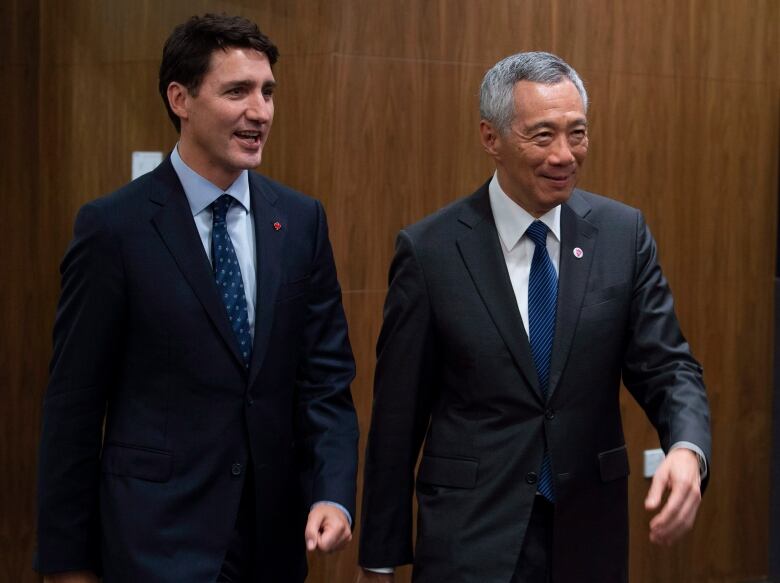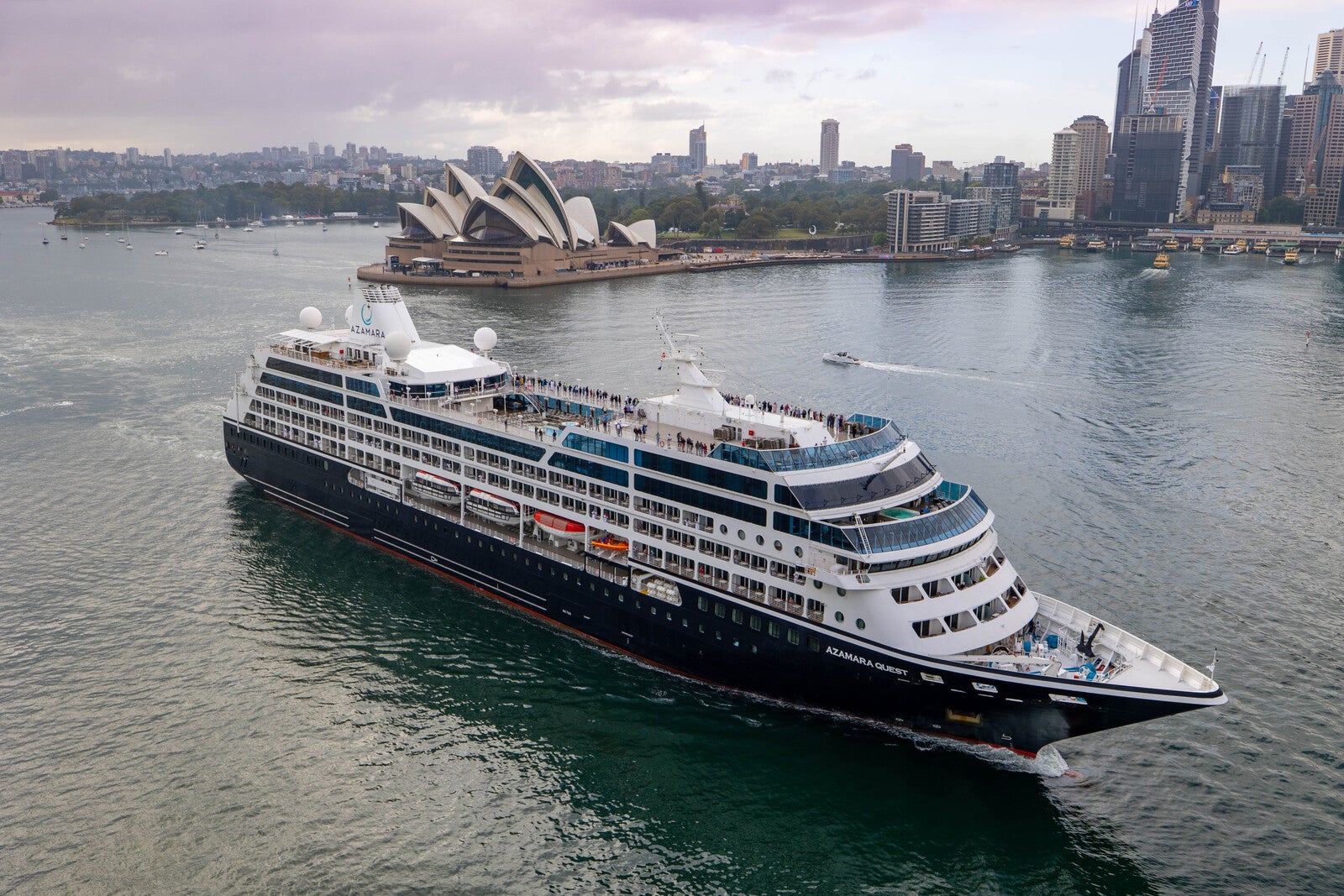Prime Minister Justin Trudeau is headed to two international summits this week to push for expanded trade and closer ties with parts of Asia — goals that are likely to be overshadowed by Russia’s war on Ukraine.
Trudeau and International Trade Minister Mary Ng are attending the Association of Southeast Asian Nations (ASEAN) summit in Jakarta, Indonesia from September 5 to 6. They’ll be in New Delhi, India from from September 9 to 10 for the G20 summit, with a stopover in Singapore from September 7 to 8 to chase new foreign investment.
Most international summits end with a joint communique outlining objectives and measures agreed upon by all member countries. Last year’s G20, hosted by Indonesia, was able to reach consensus on a number of global issues and even included language on Ukraine.
With the G20 assembly still split over the war in Ukraine and other burning issues, such as climate change, experts don’t hold out a lot of hope for a similar outcome this year.

“Getting a joint statement this year at the G20 will be even harder than last time,” said one senior government official who was not authorized to speak publicly on the issue.
Paul Samson, president of the Centre for International Governance Innovation (CIGI), said he also doubts the G20 can agree on a communique this time.
Samson, who has co-chaired a G20 working group on the global economy for many years, pointed to ministerial summits in recent months that ended with so-called “outcome documents” and summaries outlining each government’s positions on various issues.
“It’s unfortunate because … you lose the multilateral reform [on issues] such as climate change,” he said. “Those kinds of things where there could have been an agreement between all parties, that gets pushed aside because of the disagreement on those other areas.”
This is the first G20 since a recent move spearheaded by China to expand the BRICS — a group made up of Brazil, Russia, India, China and South Africa that sees itself as a counterweight to the G7 within the G20. Argentina, Egypt, Ethiopia, Iran, Saudi Arabia and the United Arab Emirates have been invited to join.
While a consensus outcome at the G20 appears unlikely, Canada hopes to make progress at the ASEAN summit toward completing a trade agreement with Indonesia and the region as a whole.
“We are aware of the criticism of Canada as a sometimes friend that sometimes shows up and then disappears,” said the senior government official. “Not anymore.”
The official said that since Canada is now officially a strategic partner of ASEAN, “we will be back every year.”
Getting Southeast Asia’s attention
Canada’s priority going into the ASEAN summit is to make sure Southeast Asia’s leaders see this country as a prime candidate for trade relationships, government officials said. At least one Canadian minister has joked that international leaders don’t wake up thinking of Canada.
“That may be nowhere more true than it is in Southeast Asia, which is very far from Canada geographically,” said Jeff Nankivell, president and CEO of the Asia Pacific Foundation of Canada.
“These summits are an important occasion to get the attention of leaders in the region.”
Nankivell said Canada is keen on Southeast Asia because of its agri-food export potential — the region is experiencing acute food security problems, made worse by the war in Ukraine — while the region is interested in Canada as a provider of clean tech services and goods.

After Indonesia, the prime minister is making a quick stop in Singapore for a bilateral meeting with Prime Minister Lee Hsien Loong to promote investment opportunities in Canada.
“There is no more key global hub for finance and business in that region than Singapore,” said the senior government official.
Driving all of this is Canada’s year-old Indo-Pacific strategy — which is why Canada’s new special envoy to the Indo-Pacific, Ambassador to Japan Ian McKay, will be part of the delegation in both Indonesia and Singapore.
But the G20 in New Delhi, with its complex and tense geopolitics, is likely to eclipse those previous stops.
India in the middle
The host country India, which is both a member of BRICS and a country with strong ties to the West, can be expected to pursue a middle ground and push for the interests of developing countries, especially on climate change and food insecurity.
That will involve pressing developed countries like Canada to finally pony up the $100 billion they promised to help developing countries mitigate the effects of climate change.
Discussions of food insecurity will be trickier since they lead inevitably back to the war in Ukraine — specifically Russia’s refusal to renew the deal that allowed Ukraine to continue exporting grain from its Black Sea port.
WATCH: Zelenskyy calls on world to ‘stand up’ to Russia
Ukrainian President Volodymyr Zelenskyy repeatedly used the number 19 in his video address to world leaders at the G20 summit in Bali, urging them to condemn Russia over its invasion of Ukraine.
And unlike last year’s G20 summit in Bali, Ukrainian President Volodymyr Zelenskyy was not invited to appear by video at this one.
With group consensus less likely, one-on-one meetings between countries become more important. Canada is seeking bilateral meetings with South Korea and Japan, two countries that could turn to Canada as a reliable supplier of clean tech. Australia is also on Canada’s list of priority countries for talks on the G20 sidelines.
Prime Minister Trudeau likely will have a “moment” at the G20 with Indian Prime Minister Narendra Modi, the government official said — either through a formal bilateral meeting or a so-called “pull aside.”

Relations between the two nations have declined over the past year, partly due to Trudeau’s vocal support for protesting farmers in India and India’s stated concerns about people in Canada sympathetic to the Sikh separatist movement.
But India — the most populous country in the world and the fastest-growing economy in the G20 — is an important ally and partner to have. Canada has been in talks with India on negotiating a limited free trade deal. Canada requested a pause in those talks within the past month. Officials have said only that they want to take stock of where things stand in the trade talks.
And experts say Trudeau is likely keen to see this visit go better than his last trip to India in 2018 — when he was pilloried for his choice of outfits and his wife was photographed beside a convicted Sikh extremist.
The impact of this particular G20 summit could be being undermined by the expectation that Chinese President Xi Jinping will not attend. Premier Li Qiang is likely to attend in his place.
Russian President Vladimir Putin isn’t attending either; he faces a warrant for his arrest from the International Criminal Court at the Hague, which accuses him of overseeing the abduction of Ukrainian children. Russia’s Foreign Minister Sergey Lavrov will attend instead, as he did in 2022.
“The fact that we’re all getting together is a reminder that we think this global forum is useful,” said the senior government official.
“For all of us to take ourselves out of regional rivalries and do what is good for all of us — that is the potential of the G20.”













;Resize=(1180))







Discussion about this post